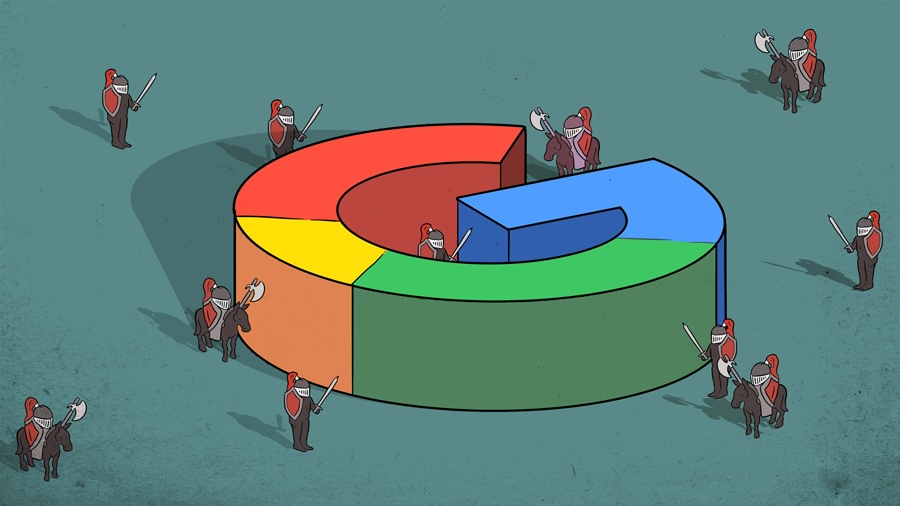Last Tuesday, Judge Amit Mehta issued what was billed as a landmark ruling in the government’s antitrust case against Google. The headlines screamed “search shake-up” and “historic blow.” But if you take a closer look, you’ll see a ruling that’s more dry ice smoke machine than earthquake.
For Google, this was less a day of reckoning than a day of relief.
Appeal, appeal, appeal
The first thing to remember is that Google has already promised to appeal. And when companies like Google say “appeal,” they don’t mean a quick trip to the neighborhood court down the street.
They mean a drawn-out legal odyssey that could land in the Supreme Court and take years to resolve. By then, your phone will be on its fourth software update, and this case will still be slogging through briefs and oral arguments.
Anyone expecting change next week — or even next year — should keep waiting.
Keeping Chrome is the real win
The government wanted a structural remedy — something dramatic, like forcing Google to sell Chrome. That didn’t happen. Google gets to keep Chrome, the digital crown jewel that anchors its empire.
Yes, Google now has to share some search results and data with rivals. But the fact that it didn’t have to break itself up is a huge victory. Google lost a battle but kept the castle.
Time is on Google’s side
Even the new requirements aren’t immediate.
Before rivals see anything meaningful, the lawyers will still be wrangling. That means Google has what it loves most: time. And if there’s one thing Google knows how to do, it’s innovate around obstacles.
Does anyone really doubt that the company is already devising ways to turn forced data-sharing into yet another advantage? By the time rivals get their hands on what they think will be game-changing access, Google will have made it just another footnote in its playbook.
Google’s PR machine will spin this gold
Beyond the courtroom, Google’s public-relations operation is already at work, painting Tuesday’s ruling not as a setback but as a vindication.
Expect to hear lines about how Google isn’t just defending its business — it’s defending your right to use the technology you love. In other words, they’ll turn “we lost a case” into “we fought for you.”
And you know what? A lot of people will buy it, because Google is still one of the most powerful brands on the planet.
Big Tech is watching — and taking notes
The biggest long-term effect of this ruling may not be on Google at all. Other Big Tech giants are now watching closely. If the worst consequence of an antitrust trial is that you have to share some data — but you still get to keep your most valuable assets — why not take the risk? This outcome doesn’t scare Apple, Amazon or Meta. It emboldens them.
The takeaway isn’t “be careful.” It’s “go ahead, roll the dice.”
The big picture
So what do we really have here? Not a structural breakup. Not a company-splitting mandate. Not the dismantling of one of the most profitable business models in history. Instead, we have a ruling that says: stop being quite so exclusive with your deals, share some data with rivals, and carry on.
It’s a partial slap on the wrist dressed up as a thunderclap. And the beauty for Google is that while it fights the appeal, it still gets to do business as usual. Chrome remains untouched. Android remains untouched. The search default deals aren’t entirely dead. And Google gets years to tweak, adjust and innovate its way around the edges.
So here’s the effective executive summary:
Headlines said: “Google punished.”
Legal reality says: “Google survives, mostly intact.”
That’s not exactly a cautionary tale. It’s a survival story. And in Silicon Valley, survival stories usually come with stock bumps, not stock slides.
A shrug, not a shock
When history books cover this case, it will be tempting to label Tuesday’s ruling as the day Google finally met its match. But in reality, this was more of a speed bump. The appeals process alone will drag things out long enough that the “new rules” might feel old by the time they arrive. And by then, Google will have turned compliance into yet another competitive advantage.
If you’re a rival search engine hoping this is your moment, don’t pop the champagne just yet. You may find yourself drinking Google’s leftovers while it keeps baking the bread.
And if you’re a user, don’t expect radical change in your daily digital life. Chrome will still be Chrome. Search will still be Google. And the company will still be as dominant — and as self-confident —as ever.
Tuesday wasn’t the antitrust climax. It was a reminder that when you’re dealing with a company like Google, the real story isn’t what the court orders. It’s what Google does with the time the courts give it. And right now, Google has time in spades.
Aron Solomon is the chief strategy officer for Amplify. He holds a law degree and has taught entrepreneurship at McGill University and the University of Pennsylvania, and was elected to Fastcase 50, recognizing the top 50 legal innovators in the world. His writing has been featured in Newsweek, The Hill, Fast Company, Fortune, Forbes, CBS News, CNBC, USA Today and many other publications. He was nominated for a Pulitzer Prize for his op-ed in The Independent exposing the NFL’s “race-norming” policies.
Related reading:
Illustration: Li-Anne Dias

Stay up to date with recent funding rounds, acquisitions, and more with the
Crunchbase Daily.

